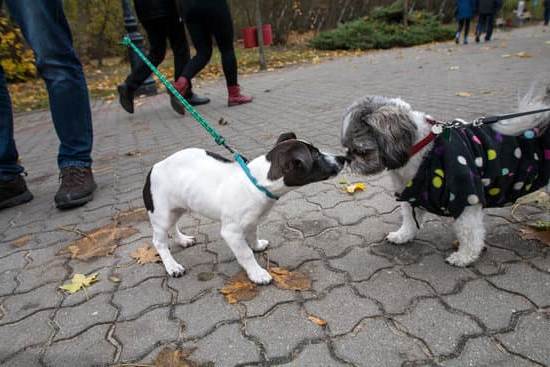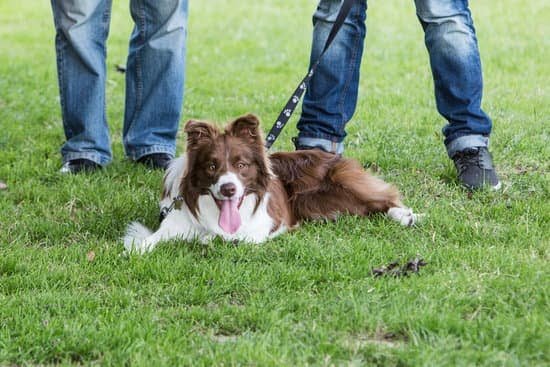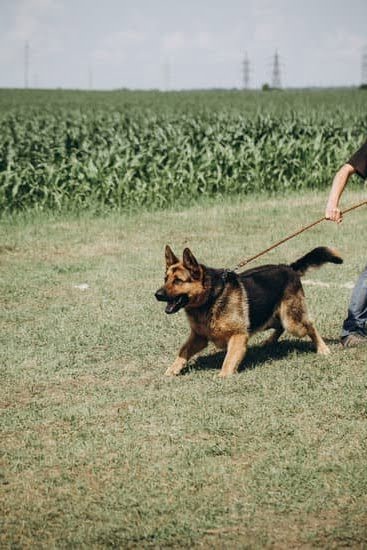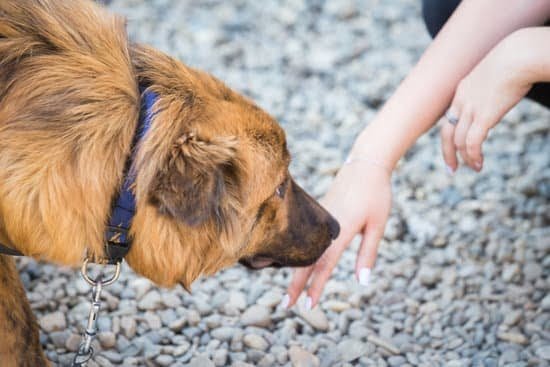Neutering a dog is a common practice among pet owners, often pursued for its potential benefits in behavior and training. One of the questions frequently asked by dog owners is, “Does neutering a dog help with potty training?” This article aims to explore the relationship between neutering and potty training in dogs, shedding light on the impact of this procedure on their behavior and training habits.
Understanding the role of hormones in potty training behavior is crucial in evaluating the effects of neutering. Hormonal changes can significantly influence a dog’s tendency to mark territory and exhibit certain behaviors related to potty training. By examining the connection between hormone levels and potty training behavior, we can gain insight into how neutering may play a role in addressing these issues.
Additionally, the article will delve into how neutering can potentially reduce the urge to mark territory, which directly impacts potty training. Analyzing this aspect will provide valuable information for dog owners seeking solutions to improve their pets’ potty training habits through neutering. Moreover, we will explore how neutering might affect aggressive behavior in dogs, considering its potential impact on potty training and overall obedience.
The Role of Hormones in Potty Training
Neutering a dog can have various effects on their behavior and physiology, including their potty training habits. Hormones play a significant role in a dog’s ability to control their bladder and maintain proper potty training behavior. When considering the impact of neutering on potty training, it is essential to understand the connection between hormone levels and the dog’s ability to exhibit appropriate bathroom behaviors.
One of the primary hormones affected by neutering is testosterone. In male dogs, testosterone can contribute to territorial marking behaviors, which often manifest as urinating in various areas to establish dominance or claim territory. By reducing testosterone levels through neutering, this instinctual urge to mark territory can be significantly diminished, leading to improved potty training success.
In addition to testosterone, other hormones such as estrogen and progesterone in female dogs can also influence potty training behavior. Neutering female dogs can help regulate these hormone levels, potentially reducing the frequency of accidents and improving overall bladder control. It is important for dog owners to recognize that while neutering plays a role in regulating hormone levels, it should be accompanied by consistent and positive reinforcement-based training techniques for optimal potty training results.
- Testosterone levels influence territorial marking behaviors
- Neutering reduces testosterone levels in male dogs
- Estrogen and progesterone affect bladder control in female dogs
Ultimately, while neutering can have an impact on hormone levels and thus potty training behavior, it is not a standalone solution for addressing bathroom habits in dogs. Instead, it should be viewed as one component of a comprehensive approach that includes proper training and reinforcement techniques. Understanding the connection between hormone levels and potty training behavior is crucial for dog owners seeking effective strategies for successful bathroom habits in their pets.
- Neutering does impact hormone levels related to potty behavior
- It should be combined with consistent training methods
- Understanding hormone regulation is crucial for successful potty training
Neutering and Marking Behavior
Understanding Marking Behavior
Marking behavior in dogs is often associated with the urge to establish territory and communicate with other animals. This behavior typically involves the dog urinating in small amounts on vertical surfaces as a way of marking their territory. Unneutered male dogs are particularly prone to this behavior as a result of their hormonal levels, which drive them to assert dominance and mark their territory.
The Impact of Neutering
Neutering, specifically in male dogs, can significantly reduce the urge to mark territory. This is because the procedure typically leads to a decrease in testosterone levels, which in turn reduces the dog’s motivation to engage in marking behavior. As a result, neutering can have a positive impact on potty training efforts, especially for male dogs who exhibit territorial marking tendencies.
Effect on Potty Training
By reducing the urge to mark territory, neutering can contribute to improved potty training outcomes for dogs. With the decrease in hormonal drive to assert dominance through marking, neutered male dogs may exhibit less frequent or intense marking behavior indoors, making it easier for pet owners to focus on basic potty training techniques such as consistent schedules, rewards for appropriate elimination, and positive reinforcement.
However, it is important for dog owners to note that while neutering can help mitigate marking behavior, proper training remains essential for successful potty training regardless of neuter status.
Neutering and Aggression
Neutering a dog is a common practice for pet owners, often done to control the pet population and prevent unwanted behaviors. However, there is also a significant impact on the behavior of dogs, including their potty training habits. The role of neutering in addressing aggressive behavior and its relation to potty training is an important aspect to consider when making the decision to neuter a dog.
One key factor to understand is the role of hormones in influencing aggression and potty training in dogs. Testosterone, which is produced in higher levels in unneutered male dogs, can contribute to territorial marking and aggressive behaviors. By reducing testosterone levels through neutering, the urge to mark territory may decrease, subsequently aiding in potty training efforts. This hormonal influence underscores the potential impact of neutering on reducing aggressive behavior and facilitating better potty training outcomes.
In addition to hormonal influences, it’s essential to recognize that neutering alone may not completely eliminate aggressive behaviors or solve all potty training challenges. While neutering can play a significant role in addressing certain behaviors, proper training methods are still crucial for overall success. Consistent positive reinforcement-based training remains vital for helping dogs learn appropriate potty habits and managing any existing behavioral issues associated with aggression.
- Neutering can reduce testosterone levels
- Lower testosterone levels may decrease territorial marking
- Proper training methods are still crucial for success
Ultimately, while neutering plays a role in mitigating certain behaviors such as aggression and territorial marking, it does not guarantee immediate or complete resolution of these issues. Understanding that the impact of neutering on potty training will be influenced by various factors, including individual dog behavior and environmental conditions, is essential for dog owners considering this option as part of their training strategy.
The Importance of Training
Potty training is a crucial aspect of owning a dog, and it requires patience, consistency, and positive reinforcement. Neutering a dog can indeed have an impact on potty training, as it can help reduce certain behaviors associated with intact male dogs. However, it is essential to understand that neutering alone is not a guarantee for successful potty training. Consistent and positive reinforcement-based training plays a significant role in the process.
Neutering can help with potty training by reducing the urge to mark territory in male dogs. Marking behavior is often linked to hormonal influences, and neutering can decrease the production of certain hormones that contribute to this behavior. However, it’s important to note that marking is also a learned behavior, so proper training is still necessary to reinforce appropriate elimination habits.
In addition to reducing marking behavior, neutering can also play a role in reducing aggression in dogs. While this may not directly impact potty training, it creates a safer and more conducive environment for training. Aggressive behavior can be a hindrance to successful potty training efforts, so addressing this issue through neutering may indirectly support the overall potty training process.
| Aspects | Relation to Potty Training |
|---|---|
| Reducing marking behavior | Can help in minimizing territorial marking and supports proper elimination habits with consistent training |
| Reducing aggression | Creates a safer environment for effective potty training efforts and reduces potential obstacles related to aggressive behavior |
Considerations for Older Dogs
When it comes to potty training, many dog owners wonder if neutering their older dogs can help with the process. Neutering can have a significant impact on the behavior of adult and senior dogs, including their potty training habits. It’s important for dog owners to understand the potential effects of neutering on potty training for older dogs before making any decisions.
One of the key considerations when it comes to neutering older dogs is the role of hormones in potty training behavior. Hormonal changes can affect a dog’s urge to mark territory and their overall bathroom habits.
Neutering can help reduce hormone-driven behaviors, such as territory marking, which in turn can positively impact potty training efforts. While neutering may not be a standalone solution for potty training, it can certainly play a role in addressing hormonal influences on bathroom behavior.
Additionally, neutering has been linked to reduced aggression in dogs. For older dogs that may exhibit aggressive behaviors that interfere with their potty training, neutering could potentially help mitigate these issues.
A calmer and less aggressive demeanor due to neutering may make it easier for adult and senior dogs to focus on their potty training and respond better to positive reinforcement-based methods. However, it’s important for dog owners considering neutering for this purpose to consult with a veterinarian or animal behaviorist to determine the best course of action for their specific dog’s needs.
Professional Perspectives
Neutering and Behavior Modification
According to veterinarians and animal behaviorists, neutering can play a significant role in behavior modification, including potty training. Neutering reduces the production of testosterone in male dogs, which can decrease behaviors such as marking territory and roaming. This hormone-driven behavior often contributes to challenges in potty training, as the dog may feel the need to mark their territory inside the house. By reducing these instincts through neutering, it can help make potty training more effective.
Behavioral Training and Neutering
While neutering may help with certain aspects of potty training, it’s important to note that it is not a standalone solution. Professional perspectives emphasize the importance of consistent behavioral training regardless of whether a dog has been neutered. Positive reinforcement-based training methods are crucial for teaching dogs where and when to eliminate waste. Whether a dog is spayed or neutered, proper training techniques will greatly impact their ability to become reliably potty trained.
The Impact on Different Age Groups
Veterinarians and animal behaviorists also note that the impact of neutering on potty training can vary depending on the age of the dog. For younger dogs, especially puppies, neutering may have a more pronounced effect on behaviors related to elimination due to their stage of development.
However, for older adult or senior dogs, the impact of neutering on potty training may be less significant compared to younger dogs. It is important for dog owners to consider these factors when making decisions about neutering and its potential impact on potty training effectiveness.
Conclusion
In conclusion, the question of whether neutering a dog helps with potty training is a complex one that involves understanding the interplay between hormones, behavior, and training. While neutering can potentially reduce marking behavior and certain types of aggression in dogs, it may not directly result in improved potty training. It’s important for dog owners to recognize that neutering alone is not a guaranteed solution for potty training issues.
Instead, successful potty training requires consistent, positive reinforcement-based training. Dog owners should focus on establishing clear routines, providing ample opportunities for their dogs to relieve themselves outside, and rewarding desired behavior. Additionally, considering professional perspectives from veterinarians and animal behaviorists can offer valuable insights into individual cases and help tailor specific training approaches to each dog’s unique needs.
For owners of older dogs, especially adult or senior dogs, the decision to neuter should be carefully considered in relation to potty training. Neutering an older dog may have different implications compared to doing so at a younger age. Ultimately, while neutering can play a role in addressing certain behavioral issues related to potty training, it is essential for dog owners to approach the process holistically and consider all factors involved in their specific situation.
Frequently Asked Questions
Will Neutering a Dog Help With House Training?
Neutering a dog can potentially help with house training, as it may reduce the dog’s marking behavior and make them less likely to roam in search of a mate. However, successful house training still depends on consistent training and positive reinforcement.
Does Neutering a Male Dog Help With Peeing?
Neutering a male dog can help reduce or eliminate marking behaviors related to territory or mating urges. It can also decrease the likelihood of urine spraying and may contribute to better bathroom habits, but individual results may vary.
Are Male Dogs Easier to Train After Neutering?
Neutering can lead to behavioral changes in male dogs that may make them easier to train. With reduced levels of testosterone, some male dogs may become less aggressive, calmer, and more focused, which can positively impact their trainability. However, other factors such as breed tendencies and early socialization also play a significant role in training ease.

Welcome to the blog! I am a professional dog trainer and have been working with dogs for many years. In this blog, I will be discussing various topics related to dog training, including tips, tricks, and advice. I hope you find this information helpful and informative. Thanks for reading!





